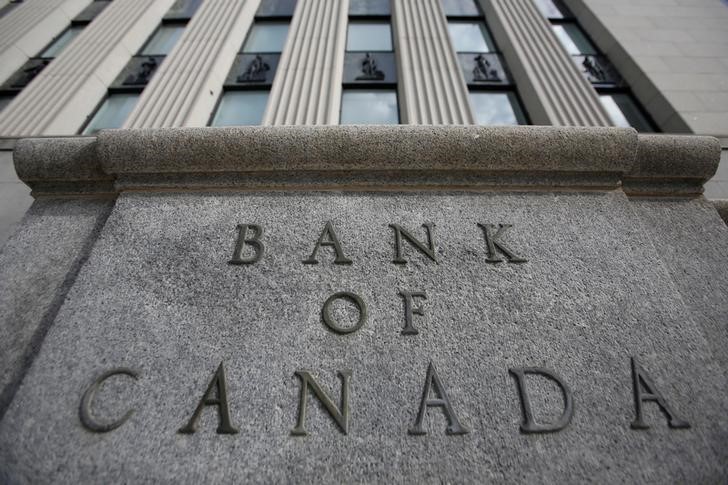By Fergal Smith
TORONTO (Reuters) - Global central banks, which fret about high asset prices, could take a page from the Bank of Canada which is helping cool an overheated housing market by raising interest rates even as inflation undershoots its 2 percent target.
Like Canada, major central banks such as the U.S. Federal Reserve, European Central Bank and Bank of Japan set monetary policy based on an inflation target.
But too rigid a focus on inflation can lead to bubbles in financial and housing markets, jeopardizing hard-won recovery in countries where central banks have kept interest rates at historically low levels.
For Canada, record household debt, which could leave the economy vulnerable to shocks, had to be balanced against too low inflation. The bank pulled the trigger with two rate increases since July, trusting its projections and betting that stronger growth will help push inflation to its target by the middle of next year.
In contrast, the Fed has dithered on whether to hike U.S. rates again this year.
The Canadian rate hikes, the first in seven years, helped calm the red-hot housing market along with measures taken by Ontario's provincial government. Earlier this year, house prices in Toronto, Canada's largest city, spiked by more than 30 percent.
"That is an important example of a responsible central bank acting on concerns of financial stability," said Stephen Roach, a senior fellow at Yale University's Jackson Institute of Global Affairs and Morgan Stanley's former chief economist.
"Central banks that keep policy at crisis settings just because inflation remains below target are asking for trouble."
Blame for financial instability flows to central banks because cheap money enables borrowers to bid up asset prices beyond their true worth.
The BoC had been criticized for fuelling the housing bubble after it cut already low interest rates in 2015. That move came amid tumbling prices of oil, one of Canada's major exports.
It remains too early to say whether rate hikes will successfully defuse a housing bubble. But a record high for Canadian financial stocks signals that some investors have bet on a soft landing.
OTHER CENTRAL BANKS RESIST TIGHTENING
Growth has picked up in other countries as well. But central banks, such as the Bank of Japan and the European Central Bank, have persisted with asset buying programs aimed ultimately at getting low inflation to their desired target, while the Reserve Bank of Australia has held rates at a record low despite household indebtedness even higher than Canada's.
Global central bankers say macro prudential measures, such as raising capital requirements, are more appropriate than the blunt tool of interest rates to tackle financial stability risks. They view additional stimulus as needed due to inflation running below targets.
"Pushing hard on monetary policy to try and turn 1.5 percent (inflation) into 2 percent is dangerous and irresponsible," said James Athey, senior investment manager at Aberdeen Standard Investments, in London.
"It was a narrow focus on inflation when setting monetary policy which contributed enormously to the build-up of imbalances and excess debt which led to the global financial crisis."
Fed policymakers had a prolonged debate about the prospects of a pickup in inflation and the path of future interest rate rises, according to the minutes of the central bank's last policy meeting in September, released on Wednesday.

"It should go ahead and bite the bullet," said investor Jim Rogers, who founded the Quantum Fund with George Soros four decades ago. "It is absurd they (interest rates) stayed so low. We are all going to pay a high price."